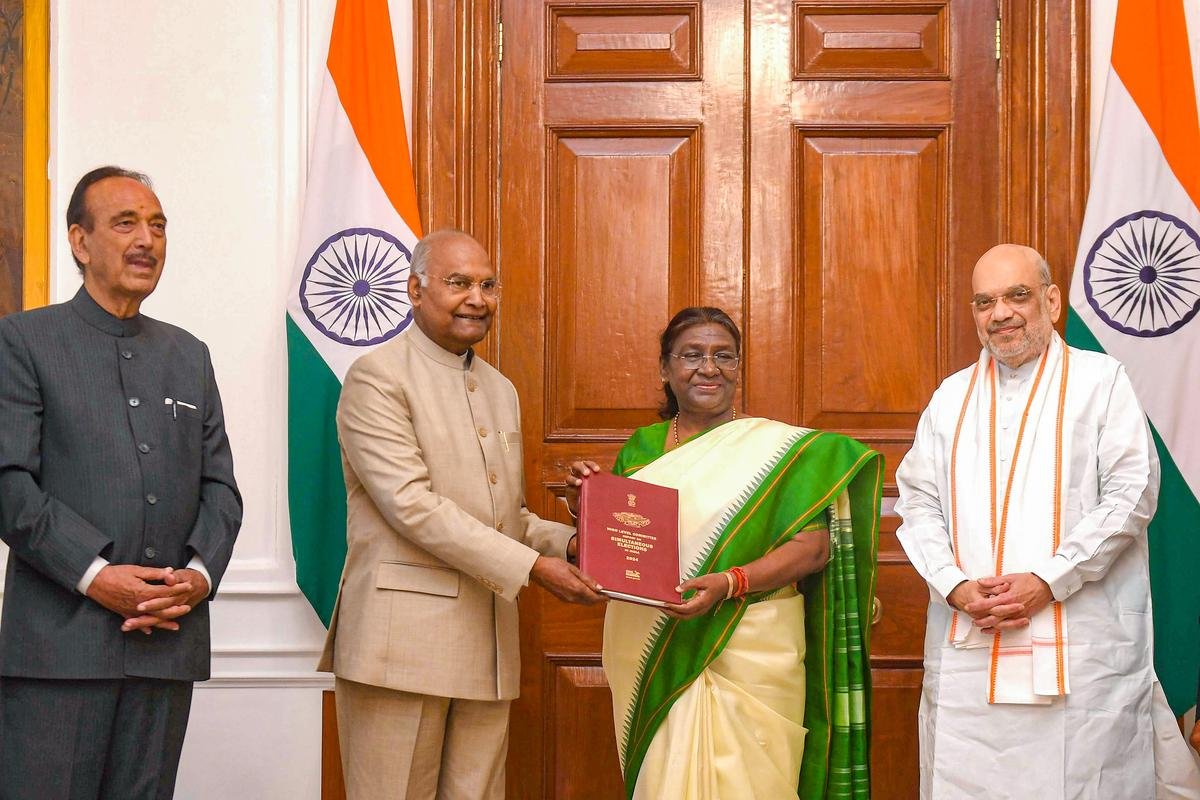| In Short |
| The Union Cabinet approved the One Nation, One Election proposal, aiming to synchronize Lok Sabha and state assembly elections. |
| A bill will likely be introduced in Parliament’s winter session, potentially seeing phased elections in India within 100 days. |
| The Kovind Committee’s report underpins the decision, recommending legal changes for synchronization. |
| Constitutional challenges include amendments to key articles related to legislative terms and dissolution of governments. |
| The Cabinet also emphasized India’s space ambitions, approving advancements in lunar exploration missions. |
What can be called the most important political exercise of its kind, the Union Cabinet under Prime Minister Narendra Modi has cleared the proposal for One Nation, One Election. It is a landmark decision that seeks to harmonize elections across the country, ushering a much-awaited change in the process of electoral reforms. Simultaneous elections may change the political and governance flavour of India by cutting down election-related disruptions and expenses. This is one of the Cabinet clearances that have been done as part of a larger slate, where steps in India’s ambitious lunar exploration missions were cleared.
What is “One Nation, One Election”?
The One Nation, One Election proposal envisages that all elections for the Lok Sabha and state assemblies should be conducted together. While some states conduct their state and national elections simultaneously-and Andhra Pradesh and Odisha are examples-most other states have different schedules. This means they go to polls much more often, placing an added financial burden but also on the administration of government. Under the new plan, voters will vote the same year for both their national representatives and their state representatives.

The notion behind this is to relieve the relentless state of political campaigning causing a disruption to governance and public services. Thirdly, it will bring relief to the Election Commission of India which has to manage multiple elections on nearly every few months.
The Approval by the Union Cabinet
As the Union Cabinet gave its assent to this bill, it took a very important step towards the final act: bringing the idea of One Nation, One Election into practical reality. Indeed, the Kovind committee, set up in 2023 following discussions with 39 political parties, election experts, and economists, came up with this idea. Their report was submitted a few months ago with suggestions on the legal changes required for the realignment of elections.

It is proposed to introduce a bill on the subject in the forthcoming winter session of Parliament. If it is passed, India will be witness to synchronized elections in just two phases: the first for the Lok Sabha and state assemblies and the second for local bodies within 100 days.
Constitutional and Logistical Challenges
One nation, one election is quite logistically and constitutionally challenging. Many expert criticisms called for an amendment in such significant articles of the Indian Constitution, such as Article 83-the term of Parliament and Article 172-the terms of state legislatures. This would require strong political support from both national and state governments.
The other important challenge is addressing intermediate collapse where either the state or central government collapses and holding fresh elections throughout the country cannot be done.
Impact on Indian Democracy
Proponents of One Nation, One Election claim that putting an end to election-related shutdowns would lead to efficient governance. Critics warn that this would undermine India’s federal character; with such contrasting priorities and governance issues in every state, harmonizing elections might dilute regional influence during national campaigns.
There is also an administrative concern about the feasibility of simultaneous elections in a country as vast and diversified as India. The Election Commission would face humongous logistical challenges, including adequate security, manpower, and infrastructure for a simultaneous poll across the country.
Other Key Decisions: India’s Lunar Ambitions
Besides electoral reforms, the Cabinet meeting reviewed India’s growing interests in space exploration. Approving new steps in India’s lunar mission gives a huge boost to the nation’s space program. Furthering India’s role in lunar research and exploration, the mission may place the country among the world leaders in the field of space technology.
India has made a mark on even more advanced lunar explorations, including potential collaborations with other space-advancing space agencies, with Chandrayaan-3 success and more missions set to follow.
Conclusion
With the One Nation, One Election approval from the Modi government, India’s political and administrative processes might have reached a turning point. While the proposal offers itself many benefits on several fronts-from reduced costs during the election to improving governance efficiency- it also poses a set of constitutional and logistical challenges. All eyes would therefore turn towards the government as the winter session of Parliament approaches, watching to see how this ambitious plan unfolds.
For Latest News Updates Click Here
